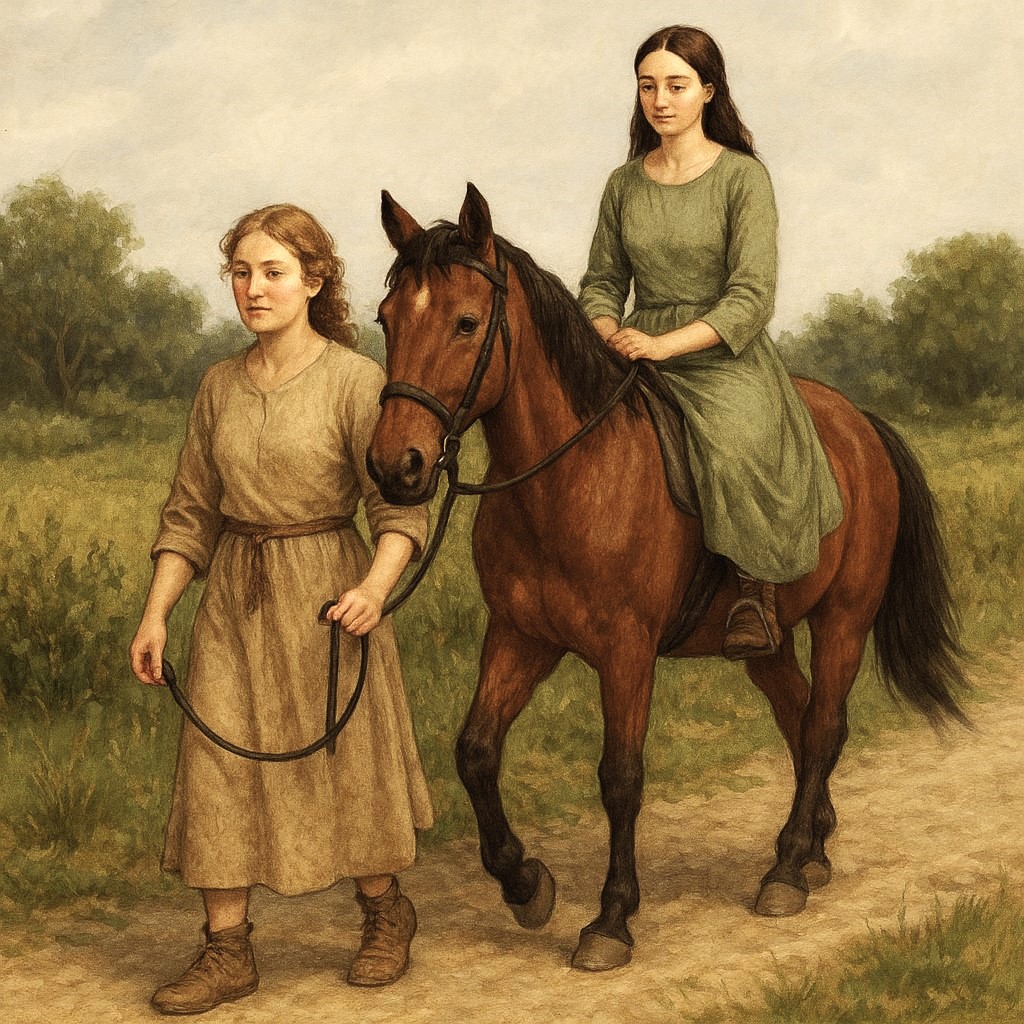Assisted Riding
Assisted riding is a means of travelling on horseback, donkey or mule, for those who do not possess the training or instinct to properly manage the animal. Those who lack horse handling cannot ride or direct a horse or mule, while it requires at least 5 points of knowledge in the study of horseback riding or any single ability associated with it to ride a donkey. To ride, such persons without this knowledge must be accompanied by a guide or handler — typically hired — who can walk along and lead the animal, so that the rider may benefit from mounted travel, though moving at a walking pace. Guides and handlers are those who have 5 points of horse-related knowledge.
The horse may be walked or ambled, but no faster gait is permitted. Since the passenger is relieved of the physical necessity of control, the effort should be counted as "mental labour" rather than "travel" with regards to the character's potential daily exhaustion.
Commensurately, with working animals such as camels or elephants, the presence of a handler is far more common. Hunters who choose to shoot game from atop an elephant will typically employ a handler to manage the animal, freeing their attention and hands. In desert regions, it's not unusual for attendants or slaves to have no training in camel management, yet still journey great distances with caravans led by young handlers, some no older than ten. To lead a camel or elephant, the guide must possess at least 5 points of knowledge specifically associated with that animal.
Assisted riding is not possible with other mounts, such as pegasi, garuda, hippocampi, hippogriffs, griffons or tarns. In the case of all these animals, and others, amateur training is necessary, reflecting the animal’s temperament, complexity or inherent danger. No amount of passive guidance or assistance can substitute for direct, personal control when managing such beasts.
See also,
Animal Training (sage field)
Paladin's Warhorse
The Adventure
Travel
Unseen Servant (spell)
